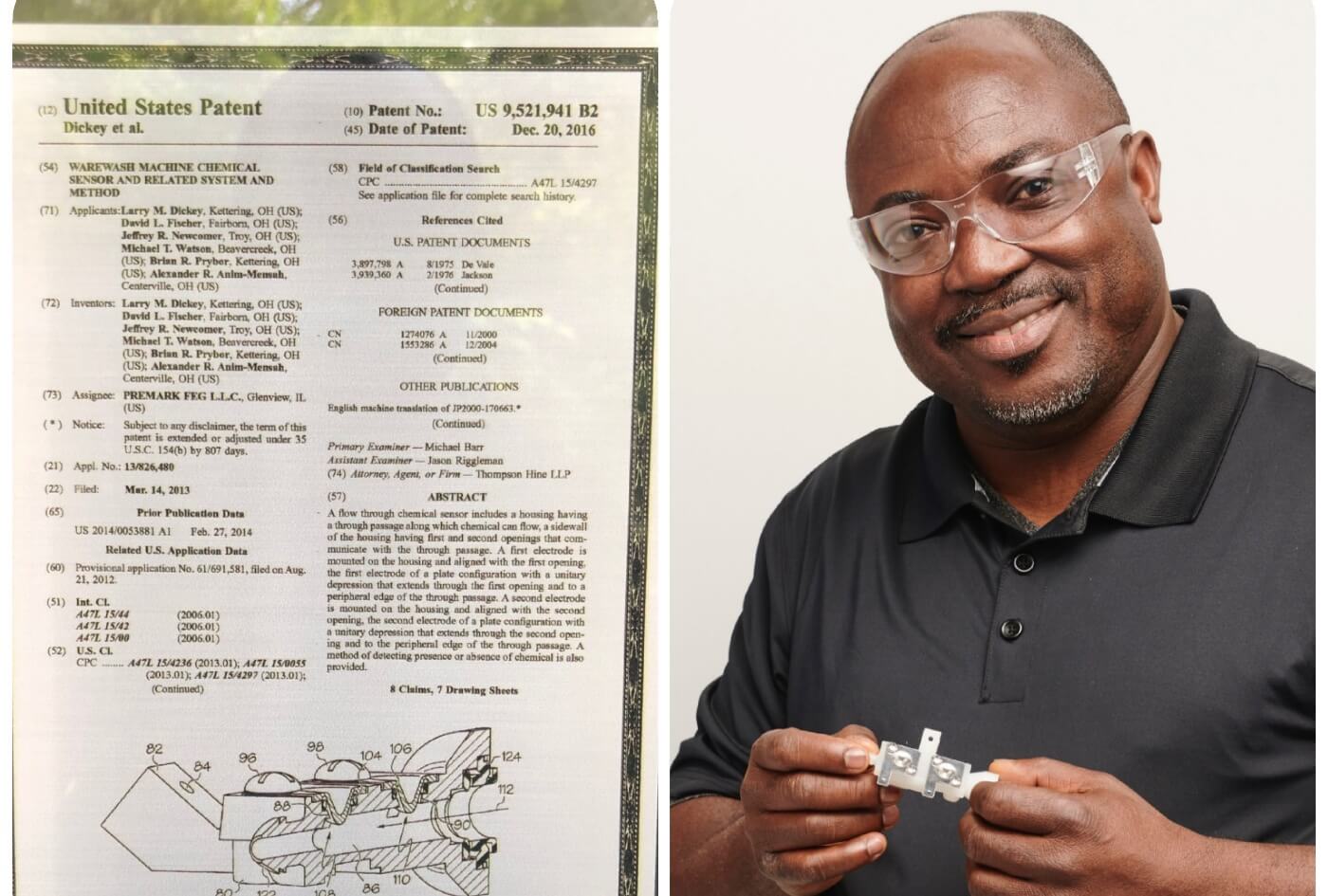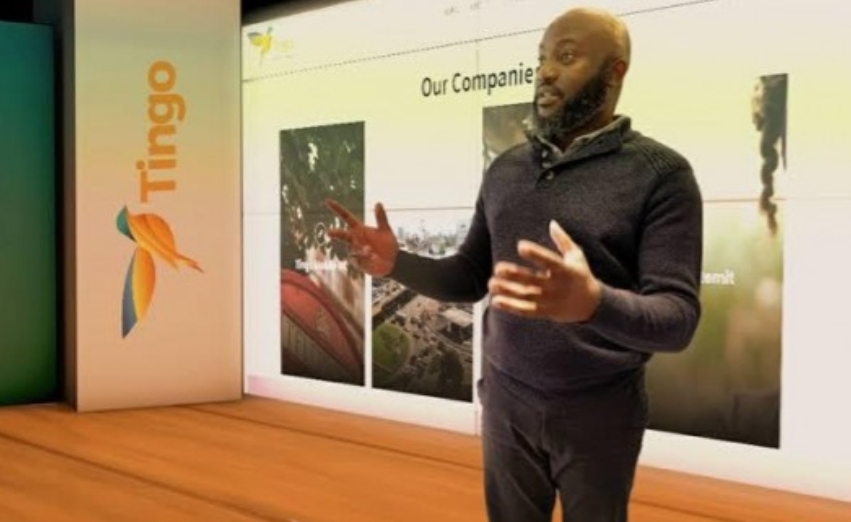Effective Transportation and Communication System—Among the Necessities for Africa’s Development — Dr. Anim-Mensah

For a developing country, communication and transportation systems, and its networks are among some basic structures to consider for development. In the developed countries, communication and transportation systems are continually being improved to support the needs of the growing population.
However, in Ghana as well as Africa in general, these are very lacking even in the light of the growing population which makes our development retract rather than move forward in our thoughts of developing.
It is worth to point out that communication, transportation, and development are interrelated, and are among some key facilitators of effective trade. In addition, communication and transportation are among some key basic structures necessary for development. Subsequent paragraphs will throw some light to support the above statements from very simplistic viewpoints.
In Ghana as well as other parts of Africa, communication has improved drastically over the last decades, however, the transportation system is still lacking and not very different in capacity from the colonial times. With the influx of the numerous telecommunications companies; communication and information access have improved.
Now in the cities it appears that about 2 out of 3 people have access to phones while about 2 out of 4 have internet access including the cafés. However, some inherent reliability problems exist where consumers are always left at the mercy of the poor services by their providers. I believe consumers complaints should not be taken lightly for improvement and consumer protection.
Read Also: Dr. Alexander Anim-Mensah Among Ghanaians in the US Making Great Strides
Transportation means are mostly by road, rail, air, and water. Though, air transport availability has improved, affordability makes the road the major transportation means. However, most of the roads are plagued with potholes, narrowness, traffic, no proper networking, pollution from slow moving traffics, some with no median between opposite traffic, etc. In addition, some of the roads have conditions that makes them prone to accidents, have low capacities and often associated with significant delays.
It is quite surprising to know that within a 12-hour working day in Ghana (i.e., say 8 am – 8 pm), a 1- mile travel in some of the major cities may take about 1 hour, while a 100-mile journey will require about 5 hours. However, in the developed countries, a mile and a 100-mile journey may take on average about 2 minutes and 1 hours 30 minutes, respectively.
Comparing the developed and developing countries travel times; about 58 minutes and 3 hours 30 minutes of productive work are lost for a mile travel in the city and a 100 miles journey, respectively, in a day. This makes the gap between the developed and developing countries widen by about 44 days (352 hours) for 1 mile in the city and 160 days (1274 hours) for a 100-mile journey per year of productivity work loss per person in the above scenario.
In addition, developing countries not having efficient cars, up-to-date efficient petroleum processing technologies, buy petroleum products at high prices; consume more fuel from slow-moving traffic, more environmental pollution from inefficient engine combustion and more productive time and money loss from the road. Moreover, losses from accidents as well as some of the scary conditions on some of the roads are unimaginable.
Internet has come to stay with us; however, a slow-speed internet rather leads to productive time waste compared with high-speed internet. If it takes about 5 seconds of high-speed internet verses 5 minutes of slow-speed to download a page; here about 4 minutes 55 seconds productive time is lost. Consider, if 1% of a population is faced with this challenge, imagine the total productive time loss to a country if individuals need to wait while using slow-speed internets.
Consider the losses to businesses whose operations hugely rely on internet but only have access to slow-speed internet? Clearly, an affordable high-speed internet is necessary for development because of the associated improved efficiency, lower time waste. Hence, time saved that could be used for something beneficial; hence, increased productivity.
It appears as if from the above simplistic calculation that, most developing countries are still moving in the opposite direction of development if not matching time whiles the gap widens comparing with the developed countries.
Read Also: Some Basics on Intellectual Property (IP) to Position Africans to Tap AfCFTA IP Opportunities
As we all already know “time is money” and “time loss can never be regained”, I believe investigating every process critically is necessary to determine benefits, bottlenecks, and opportunities for improvements for maximization if development is desirable. There are lot more factors that exist other than what is discussed here, however without the mindsets change Africa will still be at a development standstill if not retract.
I know AfCFTA is here to assist change the mindsets and attitudes and drive the needed development.
- Imagine the money and productivity losses, impacts on businesses, and the effect on a country if there are continual delays on the mostly used transportation systems?
- Imagine resources – human, materials, etc. and money loss from preventable accidents on our roads in a year and impacts on businesses and a country as a whole?
- Imagine the number of businesses lost from poor communication and transportation systems and networks.
- Imagine the money and productivity losses in a country where the lifestyle and activities are all about lateness and delays.
- Imagine a country where little is done on pollution abatement systems.
- Imagine a country where nothing is done to cater for the growing population.
- Imagine a country where the mindset is, the government is always responsible for everything.
The achievement of efficient transportation and communication systems are not far if proper planning is taken into consideration. Implementing the necessary policies and laws to make transportation, communication, and other supporting systems work effectively will be a step in the right direction to support the needed African development.
I believe with proper education, exposure, and knowledge; the achievement of the above will not be politicized but viewed as a necessary need for development. I believe some basic facilities and infrastructures when available and managed properly could enhance Africa’s development.
Written by: Dr. Alexander Anim Mensah | first published on Ghanaweb.com
Dr. Alexander Anim Mensah is a PhD Chemical Engineer who has over twenty (20) years of diverse progressive experiences with a track record of delivering sustainable.
He is an inventor, author and involved with over thirty (30) patents relating to machines, devices and efficient use of energy, water, and chemicals. Among his specializations are Technology, Operations, and Value Chain Management; Business Strategy; and Intellectual Property Law and Policy. Dr. Anim-Mensah co-authored two (2) books, two (2) books chapters and several technical papers in the field of membrane science and technology, and biomedical applications.
Abeeb Lekan Sodiq is a Managing Editor & Writer at theafricandream.net. He’s as well a Graphics Designer and also known as Arakunrin Lekan.




